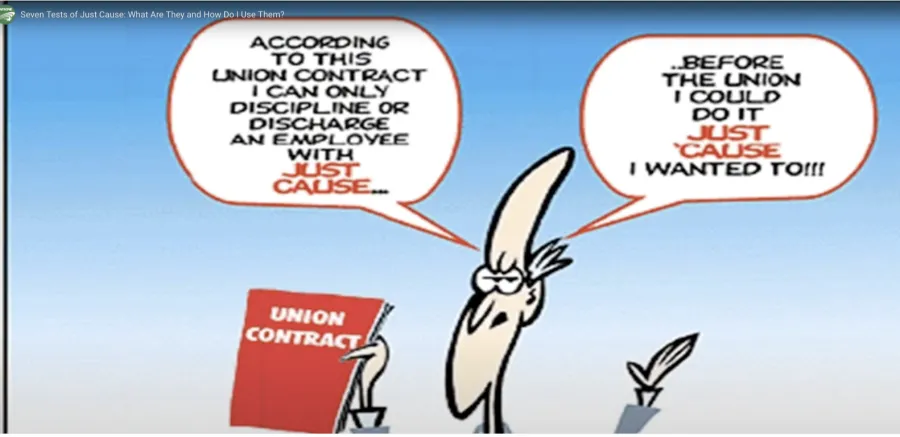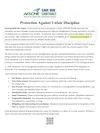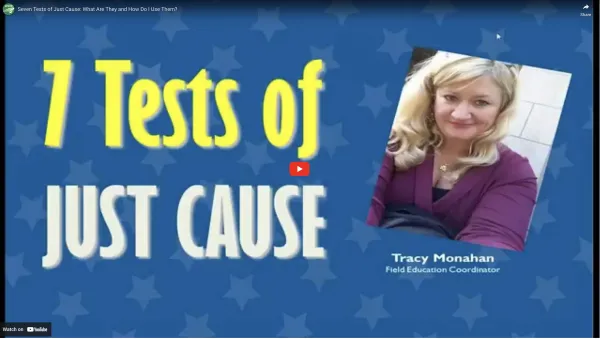Fair Grievance Process

A Fair Grievance Process: No Discipline Without ‘Just Cause’
Union stewards, leaders and staff strive to solve workplace problems informally and as close to the source of any possible contract violation as soon as possible. This is an efficient system of give and take that insures individual member’s rights are balanced out with the common good of the collectively bargained contract.

Those of us who have spent any time on a job have seen incidents where our fellow workers fail to perform up to our standards. But we have all also seen incidents of poor management, abusive and bullying behavior and union members being unfairly accused or disciplined.
It is in these incidents, whether based on personality conflict or larger issues of how a contract is interpreted, where informal problem-solving must be superseded with a formal legal process typically only available through the “Just Cause” clause in a union contract.
In 1964, Arbitrator Carroll Daugherty established a single standard to determine if the discipline or discharge of an employee can be upheld as a just cause action, known as Seven Tests of Just Cause.
Labor attorney Robert Schwartz describes the tests as follows:
- Fair Notice: Workers have to know of the rule they are accused of violating.
- Prior Enforcement: Management can’t start suddenly enforcing a rule that has gone unenforced for a long time.
- Due Process: Management must conduct an interview or a hearing before issuing discipline, and can’t increase the discipline after the fact.
- Substantial Proof: Discipline should be based on sound evidence, not rumors.
- Equal Treatment: Those committing the same offense should not receive “disparate treatment."
- Progressive Discipline: The employer should start with lesser penalties rather than moving immediately to suspension or firing.
- Mitigating and Extenuating Circumstances: Discipline must be proportional to the gravity of the offense, taking circumstances into account.
Reference: To learn more, see the AFSCME training video Seven Tests of Just Cause: What Are They and How Do I Use Them? To help you better protect your co-workers and uphold your union contract. Knowing the language and where to look for information will help you be better prepared and more confident in grievance meetings. This online class is geared specifically for AFSCME stewards and activists, but is available to all members.

Watch (48:21) >>
A fair grievance process that guarantees just cause for discipline is a basic of a union contract. Perhaps you or members of your local have benefitted from union protection from unfair discipline? Without a union contract, that protection and security will no longer exist. Act now to join your local union so we can maintain protection from unfair discipline and force management to comply with the Seven Test for Just Cause through our union contract.
